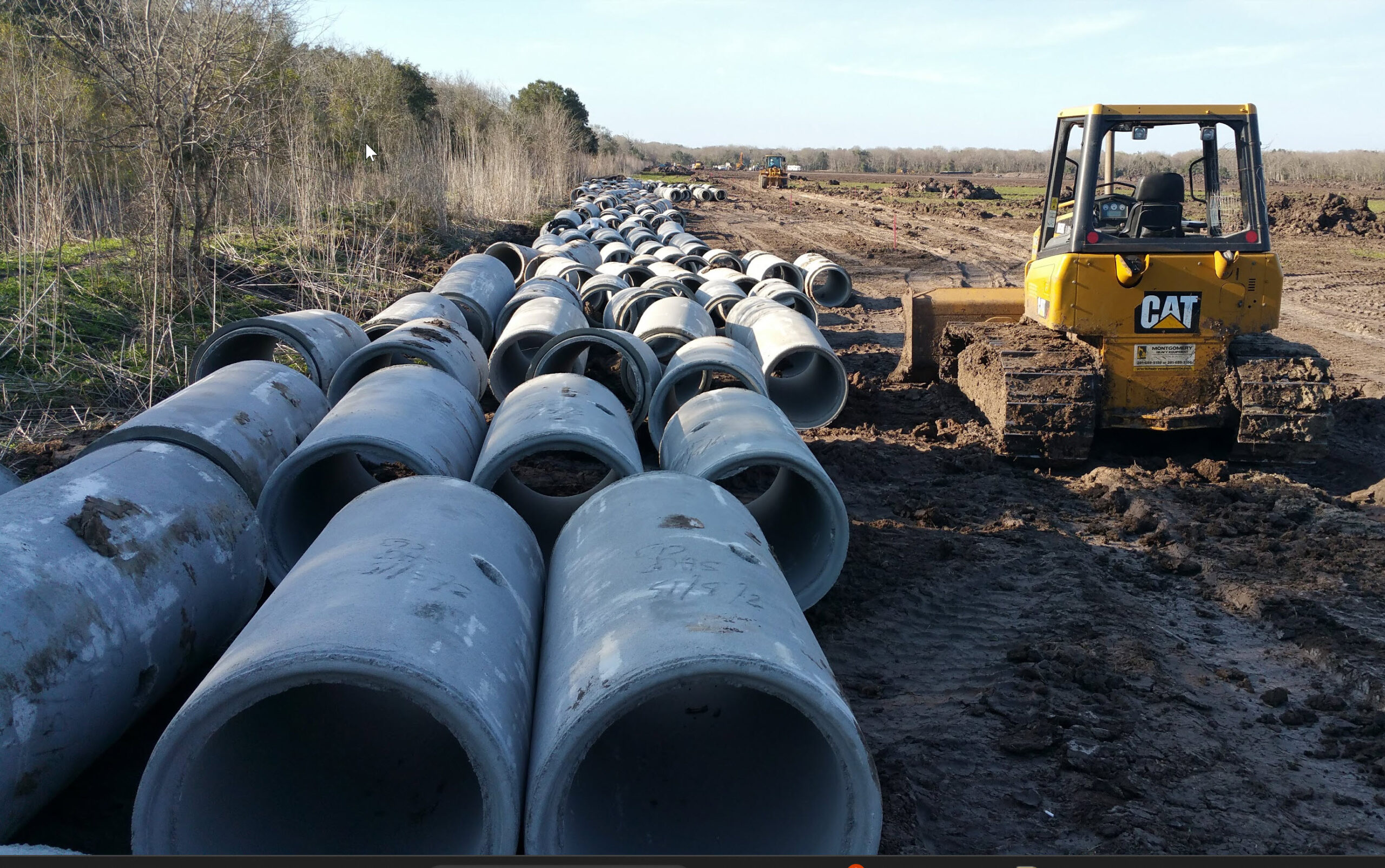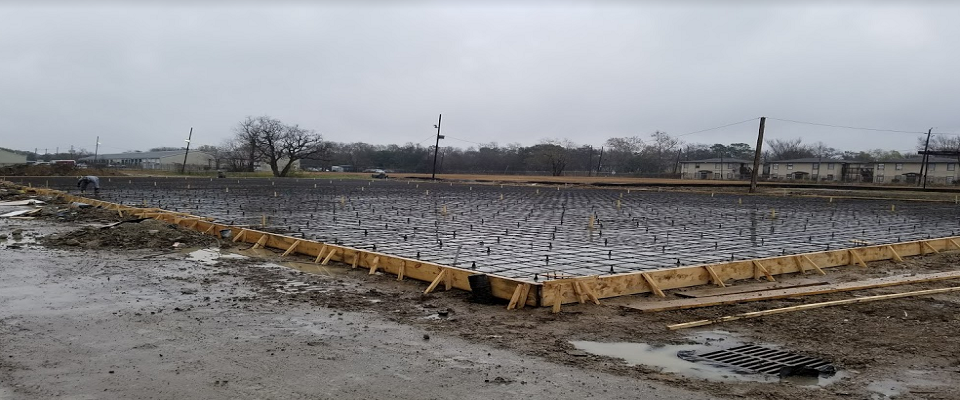Underground Utilities Storm-Water-Sanitary

Underground Storm Drainage Contractor
Concrete of Houston is a leading Underground Storm Drainage Contractor in the Houston area. Underground storm drainage services are systems that are designed to collect and transport rainwater and other surface runoff to prevent flooding and erosion. These systems are typically made up of a network of pipes, channels, and other drainage structures that are installed underground.
The services provided by underground storm drainage systems include:
- Prevention of flooding: By collecting and transporting rainwater away from roads, buildings, and other structures, underground storm drainage systems can prevent flooding.
- Erosion control: The runoff of rainwater can cause erosion, which can damage landscapes and property. Underground storm drainage systems help to control erosion by collecting and directing the flow of water.
- Protection of infrastructure: By preventing flooding and erosion, underground storm drainage systems help to protect roads, bridges, buildings, and other infrastructure from damage.
- Improvement of water quality: Underground storm drainage systems can help to improve the quality of water by collecting and filtering out pollutants before they enter natural waterways.
Overall, underground storm drainage services play a crucial role in maintaining the safety and well-being of communities by managing the flow of rainwater and other surface runoff.
Underground Water & Fireline Services
Underground water and Fireline services are two important systems for buildings and communities. Underground water services refer to the system of pipes and fittings that transport water from a municipal supply or private well to a building or property. This system typically includes a water meter, shut-off valve, and various types of pipes and fittings made of materials such as copper, PVC, or PEX. It may also include a backflow prevention device to ensure that the water supply remains safe and free of contamination.
Fireline services refer to the system of pipes and fittings that are designed to provide water for fire suppression in case of a fire emergency. These systems are typically required by local building codes and regulations and may include a fire pump, water storage tanks, and various types of pipes and fittings made of materials such as steel, ductile iron, or PVC. The fireline system is designed to ensure that firefighters have access to a reliable source of water in case of a fire emergency.
Both underground water and fireline services are critical to the safety and well-being of a community. It is important to ensure that these systems are properly designed, installed, and maintained to prevent leaks, breaks, or other issues that could compromise the supply of water or hinder the effectiveness of the fireline system.
The Concrete of Houston team provides Turnkey Water & Fireline Services. Our team consists of seasoned Underground Utility contractors including a Master Plumber. Normally, the local municipality provides the Tap, Sleeve & Valve as well as the Public meter. On the other side of the meter, we usually install a Backflow Preventer (also known as RPZ).
An RPZ backflow preventer (Reduced Pressure Zone backflow preventer) is a type of backflow prevention device that is designed to protect the public water supply from contamination due to backflow. Backflow occurs when the direction of the water flow in a pipe system is reversed, allowing non-potable water, chemicals, or other contaminants to flow back into the public water supply.
An RPV backflow preventer works by creating a physical barrier that prevents water from flowing back into the public water supply. It consists of two check valves and a pressure-reducing valve, which work together to create a zone of reduced pressure between the two check valves. If the pressure in the public water supply drops below the pressure in the building’s water system, the pressure-reducing valve will automatically open, allowing water to flow into the building. However, if there is a drop in pressure in the building’s water system, the check valves will close, preventing any water or contaminants from flowing back into the public water supply.
RPV backflow preventers are commonly used in commercial and industrial applications where there is a high risk of backflow, such as in hospitals, laboratories, and chemical plants. They are typically required by local plumbing codes and must be installed, tested, and maintained by a licensed plumber or backflow prevention specialist to ensure their proper functioning.
Sanitary Sewer Services
Sanitary sewer services are systems that collect and transport wastewater from homes, businesses, and other buildings to a treatment plant where it can be treated and disposed of in an environmentally safe manner.
The sanitary sewer system consists of a network of pipes, pumps, and other infrastructure that transports wastewater from individual buildings to the treatment plant. The wastewater may include human waste, graywater from sinks and showers, and industrial waste from commercial and industrial operations.
At the treatment plant, the wastewater is treated to remove contaminants and pollutants before being discharged into a nearby waterway or reused for irrigation or other non-potable uses. The treatment process may include physical, chemical, and biological processes, such as screening, sedimentation, aeration, and disinfection.
Sanitary sewer services are essential for protecting public health and the environment by preventing the discharge of untreated wastewater into local waterways, which can cause water pollution, spread disease, and harm aquatic life. Proper design, installation, and maintenance of the sanitary sewer system are critical to ensuring its safe and efficient operation. Regular inspection, cleaning, and repair of the pipes and infrastructure are necessary to prevent backups, leaks, and other issues that can compromise the system’s integrity.
At Concrete of Houston, we deliver turnkey Sanitary Sewer construction services including Grease Traps & Soil Test devices. Our team has performed hundreds of complex installations, some of which include drop down connections with extensive depths.
For more details about Storm, Water, Fireline or Sanitary Services in the greater Houston area, please contact the specialists at Concrete of Houston Contact Us.



